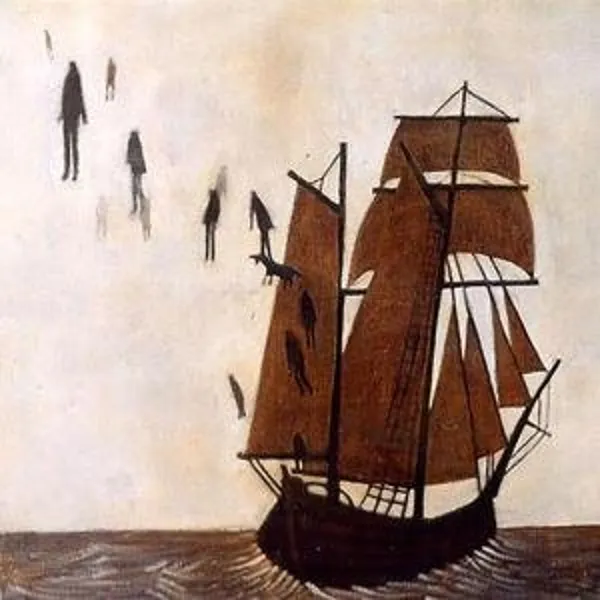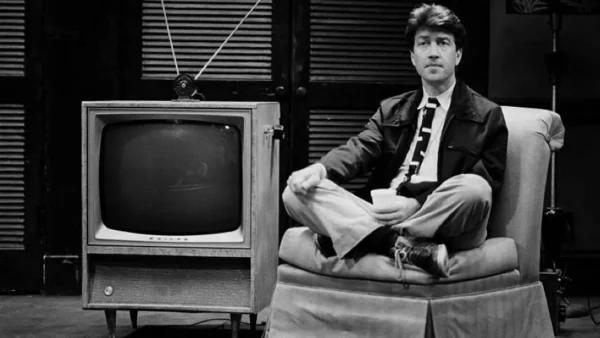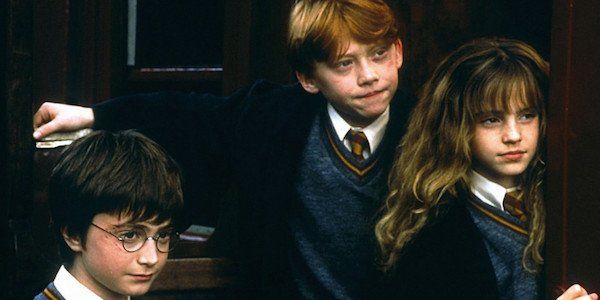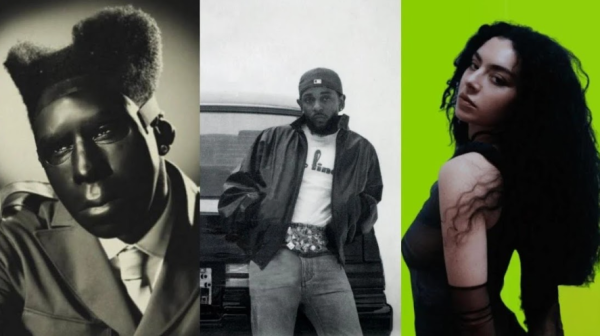A lyrical analysis of “Leslie Anne Levine” by The Decemberists

Recently (in the last couple of months) I got really into a band called The Decemberists (not the Russian decembrist revolt). For those of you who don’t know, The Decemberists are an indie folk band from Portland Oregon. The band is made up of Colin Meloy, Chris Funk, Jenny Conlee, Nate Query, and John Moen. They released their first album in 2001 entitled Five Songs, and they have been nominated twice for a Grammy for their song “Down By The Water” but never won any. Their most popular song, according to Spotify, is “Don’t Carry It All” from their 2012 album The King Is Dead.
The song I want to look at is probably mine, and many other fans’, favorite song by The Decembeists. It’s from their 2002 album Castaways and Cutouts Entitled “Leslie Anne Levine.” This song is somewhat special because it is a narrative song. The song follows the story of Leslie Anne Levine, but more specifically the story of the ghost of Leslie Anne Levine.
While researching this song I learned that this is actually a prequel to one of their newer songs “We Both Go Down Together” released in the album Picaresque in 2005. Explaining the connection is rather difficult so I’ll use a quote from Colin Meloy, the person who wrote the song explaining the connection, colin meloy wrote on substack that he’s “gone on to suggest that this couple, Leslie’s doomed mother and father, are, in fact, the couple we meet in ‘We Both Go Down Together.’ This implies that the woman survives the man (hooray!) and goes on to die in childbirth in a ditch (ohhhhhh).” basically the plot of “We Both Go down Together” is that this man finds this girl who works in the labor camps and they fall in love with each other but their families do not agree with their love so instead of not caring what their families think they decide
Before the first verse there is a riff played on the guitar, which my Dad, Patrick Lambert, who has been a fan of them since 2005, said, “independent of the words or lyrics, musically, I like the opening chords they sound very big and open and there’s a lot of open strings.” open strings are when you play a note but don’t change the semitones of the note.
Anyways, on to the actual lyrical analysis. The first lyrics are probably the darkest this song gets, apart from the connections to other songs (I.E. the suicide in “We Both Go Down Together”):
“My name is Leslie Anne Levine
My mother birthed me down a dry ravine
My mother birthed me far too soon
Born at nine and dead at noon”
The ravine that she mentions is the ditch mentioned in the interview with Colin Meloy. The ravine was probably just meant to rhyme with her name or vice versa, but it might also be emphasizing her childishness because to a child a ditch would look rather large and very much like a ravine.
Fifteen years after her death, Leslie still wanders the parapets of buildings in Dover clinging to her Mother’s petticoats,which is just a skirt that goes on under a skirt.
“Fifteen years gone now
I still wander this parapet
And shake my rattle bone
Fifteen years gone now
I still cling to the petticoats
Of the girl who died with me”
We know that it takes place in Dover because in “We Both Go Down Together” they plan to jump from a cliff in Dover. Parapets could mean trench parpets, but it could also mean building parapets. (parapets are low protective walls along the edge of a roof, bridge, balcony or trench).
But we also know that she is talking about the parapets of buildings because of the verse that comes directly after it.
“On the roofs above the streets
The only love I’ve known’s a chimney sweep
Lost and lodged inside a flue
Back in 1842”
This verse is explaining how she found a chimney sweep, which was usually a young orphaned boy, stuck inside of a chimney or flue, which is really just another way of saying chimney.
When I saw them on tour In August, they performed this song, but they changed the lyrics in the verse so instead of “Chimney sweep” it was “Chimbley sweep,” which is a reference to their 2003 album Her Majesty The Decemberists and a song on that album called “The Chimbley Sweep.” Colin Meloy talks about this on his blog on substack, which provided a wealth of info on some of Colin Meloy’s earlier songs and is just really interesting to read: “I’ve since grown accustomed to swapping ‘chimney’ for ‘chimbley’ when we do this live – I like the idea that there is some through line here, some connection between Leslie’s true love and the libidinous chimbley sweep from Her Majesty The Decemberists.”
The fourth verse has some obscure language, which is consistent with other Decemberists songs:
“Fifteen years gone now
I still wail from these catacombs
And curse my mother’s name
Fifteen years gone now
Still a wastrel mesallied
Has brought this fate on me”
Rand Hollman, a freshman at the iSchool, pointed out the line “still a wastrel mesallied” saying how he thinks it “reveals how Leslie feels about his mother and when I learned what waestral meant it revealed a lot about the song.” Mesallied is a pretty obscure French word.
I really like how Colin Meloy talks about how he came across this word on his blog on substack “I fell on this word because it felt good singing it, in this song’s rhythm and meter. I may have actually chosen the word, and then fit the circumstances around it. ‘Hmmm, mesallied,’ I thought, ‘That fits well. What does it mean?’ Of course, the definition is rife with all sorts of drama — a couple mismatched for one reason or another — and I ran with it.”
Wastrel is just a way to call someone a good-for-nothing or wasteful. The line “I still wail from these catacombs” could mean that she thinks of the city as her tomb or catacomb and the wailing could be her terrorizing the locals with ghostly wailing. This interpretation reminds me a lot of “The Chimbley Sweep” specifically the verse where the chimbley sweep says,
“Upon the rooftops in dead of night you’ll hear me cry, I’ll shake you from your sleep”
compared to Leslie’s
“I still wail from these catacombs.”
Another connection I made between the two was that both characters have no parents; Leslie’s are dead and The Chimbley Sweep’s parents have orphaned him – “I am an orphan, an orphan boy I’ve known no love, I’ve seen no mother’s joy.”
This is the last, important verse of the song:,
“My name is Leslie Anne Levine
And I’ve got no one left to mourn for me
My body lies inside its grave
In a ditch not far away”
Her parents both died so they can’t mourn her, and her grandparents did not acknowledge her parents’ love for each other, so they wouldn’t want to acknowledge a child born of a relationship that they did not approve of. The grave is probably just a metaphor for the ditch. I mean she has no surviving family that might want to bury her or even know of her existence.
Benjamin Becker, a freshman at the iSchool, said that he likes this line of the song: “I don’t know why I liked it but when I listened to it, it made me feel something.” In my case, the line makes me feel kind of sad because nobody cares about her death. This line also makes me feel a little gross with the talk of dead bodies.
The final verse:
“Fifteen years gone now
I still wander this parapet
And shake my rattle bone
Fifteen years gone now
I still cling to the petticoats
Of the girl who died with me”
The song concludes by repeating the chorus. I think that the repetition of “15 years gone now” throughout the song is meant to show the passage of time and the things that she has done over those 15 years. Rattle bone is a line that means absolutely nothing as admitted by Colin Meloy on substack “I don’t know what a rattle bone is, I may have just made it up. Some amalgam of the Smiths’ line, ‘Rattle my bones all over the stones / I’m only a beggar man whom nobody owns.’” Despite it being entirely meaningless, it is still some people’s favorite line. For example Patrick Lambert said, “I guess I always thought of it as a play on a baby’s rattle, since they died as a baby and they’re talking about haunting it seemed like maybe it was a reference to a kid’s toy.”
I had a lot of fun scouring the internet for people’s takes on the song’s meaning, some better than others (I don’t think this song is “actually about a flying machine created by Lord Quentin Cavendish Levine whose wife died in childbirth on the same day as the machine’s first voyage. He named the machine after his still born daughter who was to be named Leslie Ann.” as a user of the song meanings website might suggest). I was overjoyed when I found a version of the song annotated by Colin Meloy himself. I appreciate him not leaving us to wonder as to the song’s meaning, especially after my demoralizing experience trying to unpack the meaning of other songs only to be stopped dead in my tracks by users of the aforementioned song meanings website and by parts of interviews with Colin Meloy.
This isn’t the only narrative song by The Decemberists. Other notable examples are The Hazards Of Love, which is a whole fifty-seven minute long album telling a story, The Tain, which is more like a rock song than a folk song and tells the story of “The Tain” which was an ancient Irish legend often called “the Irish Iliad,” and last but not least “The Mariner’s Revenge Song,” which is almost eight and a half minutes long and tells the tale of a mariner seeking to avenge his mother’s death. It culminates in my favorite three verses ever written.
“The ocean shook
The sky went black
And the captain quailed
And before us grew
The angry jaws
Of a giant whale
Don’t know how I survived
The crew all was chewed alive
I must have slipped between his teeth
But, oh, what providence
What divine intelligence
That you should survive as well as me
It gives my heart great joy
To see your eyes fill with fear
So lean in close and I will whisper
The last words you’ll hear”
It’s a satisfying ending to the song and gives us a resolution to his story where he finds the man who ruined his family and exacts his revenge. The belly of a whale is also just a fun set piece to end the song in.











